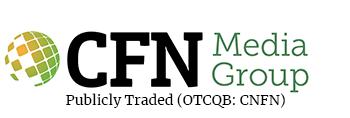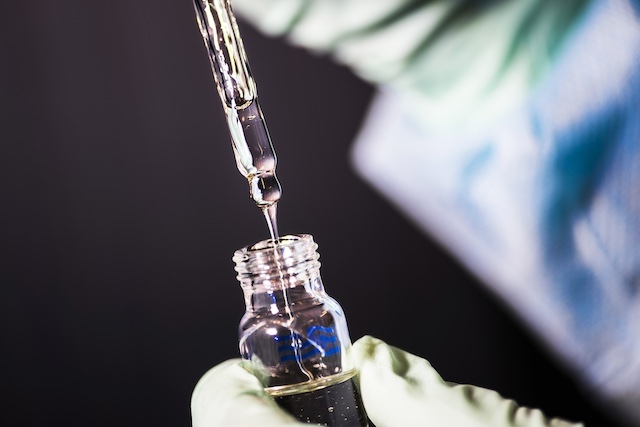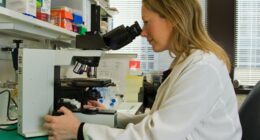The future of smaller drug development companies frequently hinges on the results of clinical trials. Given the significant investment of time and resources necessary to progress research from the laboratory through multiple trial phases, a negative outcome could delay the company’s mission to market a drug by years. Conversely, a positive trial outcome can propel the company into higher level of prosperity by advancing the drug closer to potential approval.
Last week, Cardiol Therapeutics Inc. (Nasdaq: CRDL) (TSX: CRDL) announced positive topline results of the impact of the company’s lead small molecule drug candidate, CardiolRx™, from their Phase 2 MAvERIC-Pilot study on recurrent pericarditis. Earlier this year, Cardiol was granted Orphan Drug Designation (ODD) for CardiolRx™ by the U.S. FDA for the treatment of pericarditis; and these results build on the momentum created by that decision.
The Results
Pericarditis is a painful syndrome caused by inflammation of the sac surrounding the heart. Cardiol’s study enrolled 27 patients with recurrent pericarditis, a problematic form of the disease that comes back at least four to six weeks after the resolution of a previous episode. Recurrences can occur months and even years after a previous episode.
The participants in the study had previously experienced two or more episodes prior to their current bout with the disease. The primary endpoint of the study was pain reduction, as measured on a scale of 0 to 10, with 10 being the highest level of pain. Prior to treatment with CardiolRx™, patients reported a mean pain score 5.8 on the scale, with responses ranging from 4 to 10. Pain was measured again after eight weeks of treatment, and the mean reported score dipped 64% to 2.1, with responses ranging from 0 (no pain) to 6.
The study featured secondary endpoints as well. The first is a measurement of C-reactive protein (CRP) following the eight-week treatment period. CRP is a biomarker used to evaluate levels of inflammation. Ten of the patients exhibited elevated levels of CRP prior to treatment, and eight of those measured normal following treatment. These two pieces of information, pain score and CRP levels, are typically used by clinicians to assess clinical response and determine a recurrence. The other secondary endpoint, yet to be reported, is the pain score following 26 weeks of treatment. Out of the initial 27 patients enrolled in the study, 24 (89%) have continued into the next 18 weeks of treatment.
To provide further insights into the study results, Cardiol Therapeutics’ President and CEO, David Elsley, stated: “We are delighted to share the primary endpoint data from the MAvERIC-Pilot study, demonstrating that oral administration of our small molecule CardiolRx™ led to marked reductions in pericarditis pain and inflammation, which were remarkably comparable in magnitude to the changes reported following immunosuppressive biologic therapy commonly used in third-line treatment of recurrent pericarditis. Based on the clinically meaningful impact of CardiolRx™ on the key symptom of this debilitating disease, we now anticipate that the totality of the MAvERIC-Pilot data will support advancing to a Phase III trial of CardiolRx™ designed to meet our objective of providing a more accessible and non-immunosuppressive therapy option for thousands of pericarditis patients.”
The Market Reaction
Cardiol’s stock started the month of May trading at $2.06/share and closed on June 12 at $2.97/share, appreciating about 44% in those six weeks or so. The company had been pointing to topline results in the first half of June, and the runup may have reflected anticipation of those results. Cardiol’s announcement triggered a lot of trading on June 13, dropping the price almost 21% in one day.
The explanations are just guesses in the face of such positive results. There is an old investing adage that goes something like ‘Buy the rumor, sell the news’ and this certainly looks like a classic case. With such a steep increase, some level of profit-taking is perhaps expected. The stock currently trades at $2.08, about the same level as it did at the start of May, presenting an attractive opportunity for investors.
Analysts who follow Cardiol were impressed with the result and shed light on the longer-term implications of the Phase 2 results, offering a window into the investment opportunity as the company progresses.
Leede Jones Gable analyst Douglas Loe reiterated his ‘Speculative Buy’ rating but increased his price target from $4.50 (in late March) to $11.00 following the news. Loe compared the results favorably to the Phase 3 results for rilonacept (trade name Arcalyst™), the only current FDA-approved treatment for recurrent pericarditis.
H.C. Wainwright analyst Vernon Bernardino reiterated his ‘Buy’ rating and price target of $9.00 following the news. Likewise, Bernardino compared the MAvERIC-Pilot results favorably to the Phase 3 study for rilonacept. Bernardino emphasized that Cardiol is positioned for a favorable end-of-Phase-2 meeting with the FDA, expects to present updated results at an upcoming cardiology medical conference, and anticipates that the initiation of a pivotal Phase 3 trial with CardiolRx™ will be positive catalysts in the second half of the year.
Canaccord Genuity has been following Cardiol since 2021. In April of this year, analyst Edward Nash offered a price target of $6/share with a ‘Buy’ rating, and increased that to $8/share in late May. Nash hasn’t provided an update since Cardiol’s topline results announcement. Given the positive study outcomes, an upward price target adjustment is reasonable to expect.
What’s Next?
Despite its recent market performance, the long-term growth trend for Cardiol Therapeutics is robust. Even after the profit-taking over the last week, the company’s stock has appreciated about 148% in the past year. Cardiol is relatively small for a pharmaceutical drug developer but is gaining awareness and traction in the investment community with its recent developments. The analysts point to much greater potential as the company advances CardiolRx™ to a probable Phase 3 trial for recurrent pericarditis and possible approval for commercialization.
This is not Cardiol’s only iron in the fire. The company is conducting a concurrent Phase 2 trial of CardiolRx™ for the treatment of acute myocarditis, another FDA- and EMA-eligible Orphan Drug Designation heart condition. The trial has exceeded 85% patient enrollment and is expected to complete full enrollment in Q3. Cardiol also anticipates an Investigational New Drug (IND) filing with the U.S. FDA sometime in the second half of the year for the treatment of heart failure.
With full results of the MAvERIC-Pilot study expected later this summer, another Phase 2 trial reaching full enrollment, the possibility of another ODD designation for acute myocarditis, and an anticipated IND filing for heart failure, there are plenty of potentially catalyzing events on the near-term horizon for Cardiol Therapeutics.










